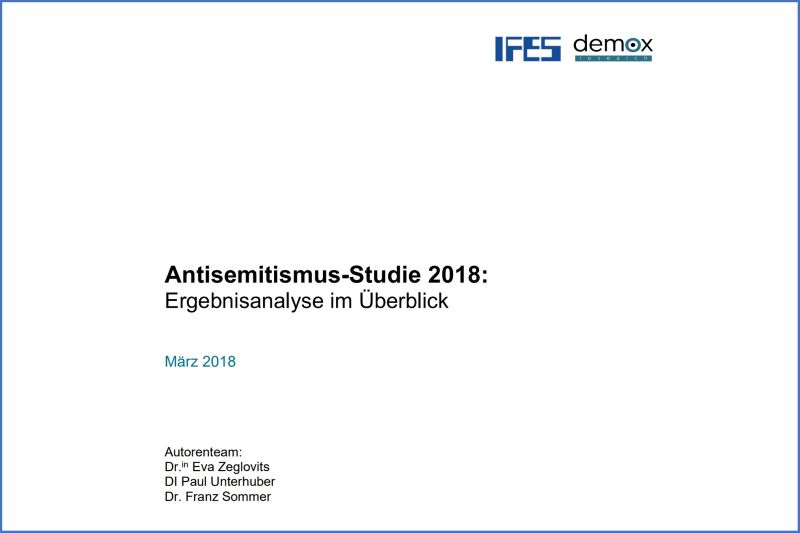The 2018 antisemitism study commissioned by the Parliamentary Directorate closes the existing research gap regarding the status and development of antisemitic tendencies in Austria. Isolated studies on the subject date back many years. Against the background of the commemorative year 1938-2018 and in view of the debate about new forms of antisemitism in Austria due to immigration, the Antisemitism Study 2018 provides an empirically sound basis for the analysis and discussion of antisemitic stereotypes.
The study offers a current inventory of the spread of the different forms of anti-Semitism in Austria and enables a differentiation between manifest (around 10% of those surveyed) and latent anti-Semitism (around 30% of those surveyed). Turkish and Arabic-speaking survey participants almost always agree with anti-Semitic statements much more strongly than the Austrian population as a whole.
The historical comparison with survey data from the past decades, which is carried out in addition to the study, shows development tendencies and documents that the climate of opinion on the question of anti-Semitism in Austria has changed for the better.
The results of the 2018 Antisemitism Survey reflect different dimensions of antisemitic attitudes:
– The traditional anti-Semitism , which sees Jews as “overpowering authority”, finds strong approval in the representative study, especially in the economic context. In the Austria-wide representative survey, 39% of those questioned agreed with the statement “The Jews dominate the international business world”.
– Israel-related anti-Semitism represents statements such as “Basically, the Israelis treat the Palestinians no differently than the Germans treated the Jews in World War II”. Every third respondent (34%) shares this opinion.
– Statements that accuse Jews of exploiting their role as victims ( secondary anti-Semitism ) receive high approval rates: “Jews today try to take advantage of the fact that they were victims during the Nazi era” is a statement supported by 36%.
– The accusation of refusal to assimilate is expressed in agreement with statements such as “It is not just coincidence that the Jews have been persecuted so often in their history; it is at least partly their own fault”. One in five respondents (19%) supports this anti-Semitic stereotype.
– An indicator of racist anti-Semitism is agreement with statements such as “You cannot expect a Jew to be decent” or “If I meet someone, I will know in a few minutes whether this person is a Jew”. The proportion of affirmative answers is 8 or 12 percent.
– Holocaust denial becomes clear as an anti-Semitic attitude dimension in the approval of statements such as “In the reports on concentration camps and the persecution of Jews in the Second World War, many things are exaggerated”. Every tenth respondent to the survey expresses this opinion.
– The role of religious anti-Judaism in anti-Semitism is articulated in religiously motivated anti-Semitism: 14% of respondents support the statement “Jews are still responsible for the death of Jesus”.






